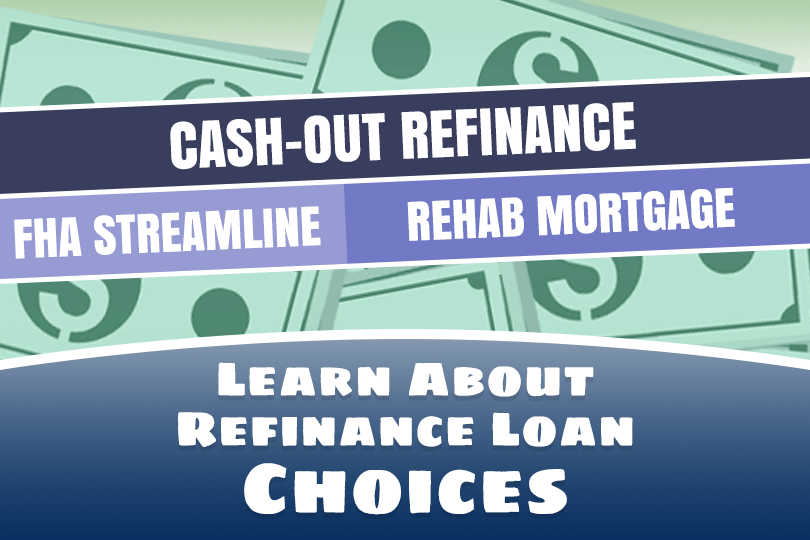Refinancing With Various FHA Loan Options
August 19, 2023
Here are some common types of FHA refinance loans:
FHA Streamline Refinance
This program is available to homeowners with existing FHA loans and is designed to make the refinancing process faster and easier. Streamline refinances typically do not require a credit check or a full appraisal, which can save time and money. Borrowers can refinance to a lower interest rate and reduce their monthly payments.
FHA Cash-Out Refinance
With a cash-out refinance, borrowers can refinance their existing FHA loan and take out additional cash from the equity in their home. This additional cash can be used for various purposes, such as home improvements, debt consolidation, or other financial needs.
FHA Rate-and-Term Refinance
This type of refinance allows borrowers to change the terms of their existing FHA loan, such as switching from an adjustable-rate mortgage (ARM) to a fixed-rate mortgage or vice versa. It can also be used to shorten or extend the loan term.
FHA 203(k) Rehabilitation Loan
While not strictly a refinance loan, the FHA 203(k) program allows borrowers to purchase or refinance a home and include the cost of necessary repairs and renovations in the loan. This can be a useful option for those looking to improve their existing home through refinancing. These are often referred to as FHA rehab loans.
It's important to note that FHA refinance loans come with certain eligibility requirements and guidelines, including credit score minimums, loan-to-value ratios, and occupancy requirements. Borrowers should also be aware of FHA mortgage insurance premiums, which are typically required for the life of the loan.
Speak with an FHA-approved lender to determine if you qualify and to understand the specific terms and benefits of the program. Your financial situation and goals are unique parts of the qualification and approval process. Additionally, the terms and guidelines for FHA loans may change over time, so it's essential to stay informed about current FHA loan requirements and regulations.
------------------------------
RELATED VIDEOS:
Disclosures Give Transparency to Borrowers
Understanding the Purpose of Your Mortgage Down Payment
Putting Money Into Your Escrow Account

FHA Loan Articles
November 20, 2024Refinancing your mortgage offers a way to cash in on your home equity, potentially reduce your interest rate, or modify your loan term. Borrowers ready to consider have options including FHA loans and conventional loans.
While both provide avenues for refinancing, each loan type may be best for specific needs and financial circumstances. What are the differences between FHA and conventional refinance options?
November 14, 2024The home you want to buy might seem perfect, or it may have a few flaws that are acceptable in the grand scheme of things. But what about issues you can’t spot just by walking through the property a few times? A home inspection provides an unbiased, expert assessment of the property's condition, uncovering potential issues that might not be noticeable to the untrained observer.
November 12, 2024Escrow is an important feature of most typical FHA loans. An escrow account is a third-party account where borrowers deposit funds designated for property taxes and other uses. Requirements to use escrow accounts typically stems from a need to protect all parties involved in the transaction
November 2, 2024When it’s time to consider buying a home, the Federal Housing Administration (FHA) offers two popular options. One is the traditional FHA purchase loan many use to buy a house in the suburbs. But not everyone wants to buy an existing property. Some want more control over the design and configuration of the home.
The other FHA construction loan option, the one-time close mortgage, comes in here. This option is for those who want to approve floor plans, have a say in the types of materials used to build the home and choose its features.
October 31, 2024When buying a home for the first time, it helps to know how long the process can take. How do you know if your appraisal report is delayed if you don’t know how long the FHA allows for the process to be completed? How long does it take to get from the final offer to closing day? A “typical” FHA loan process may take up to 45 days from start to finish. Several factors can influence this timeline.







